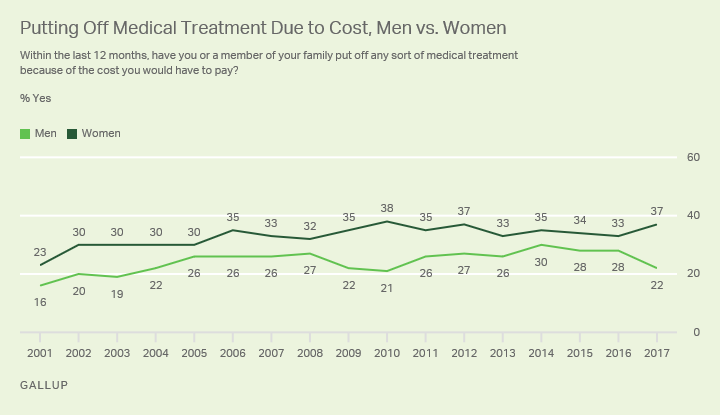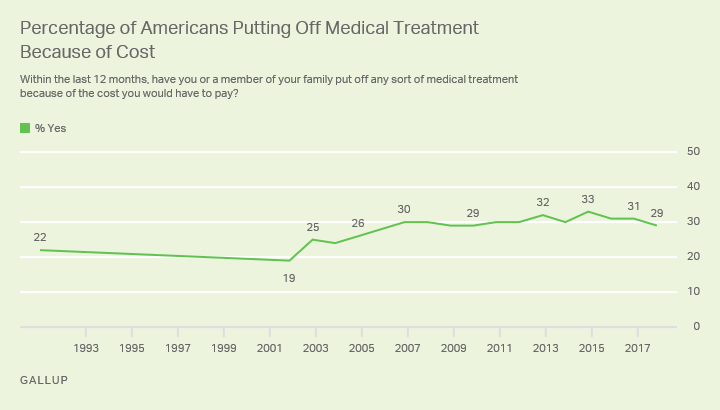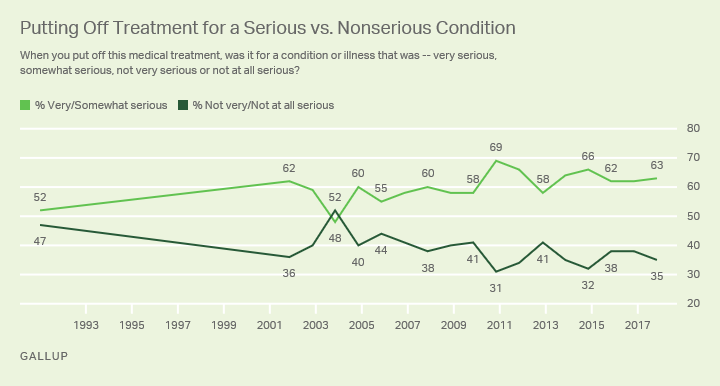Story Highlights
- 37% of women put off treatment because of cost, vs. 22% of men
- Nationally, 29% have held off on medical care because of cost
- Of those who do, 63% say untreated condition is very or somewhat serious
WASHINGTON, D.C. -- More than a third of American women (37%) report that they or a member of their family put off medical treatment in the past year because of cost, compared with less than a quarter of U.S. men (22%). A gender gap in delaying medical care has appeared consistently in Gallup's annual measurement since 2001.

The differences by gender do not appear to result from differences in the type of healthcare available to men and women. Data from Gallup's Nov. 2-8 Healthcare poll reveal little, if any, difference between men's and women's assessments of the quality, coverage or cost of their healthcare. No differences exist in the kind of insurance they have either -- be it private, government, or none at all -- which, Gallup has found, affects the likelihood of whether an adult will put off seeking medical treatment. Additionally, no gender gap exists in the reported severity of medical conditions among those who have put off receiving treatment because of cost.
The gender gap in putting off care narrows with each increasing age bracket, but even among adults aged 65 and older, women are more likely to report holding off on receiving their own or another family member's medical treatment. The gender gap also narrows with each higher income group; and among households earning $75,000 or more a year, the slightly higher figure for women is not significantly different from that of men.
Gallup's question asks about putting off medical care for the individual or their family members. Women are potentially more likely to report having delayed medical care because they are more likely than men to be caring for children, and thus may have a greater likelihood of answering on behalf of other household members.
To investigate this, Gallup reviewed aggregated data from 2013 to 2017 that shows women are more likely than men to report having put off medical treatment, regardless of whether they have children under 18. Similarly, the gap persists among those who are married and those who are not. These relationships do not rule out a gender difference based on mothers being more aware of their children's medical needs than fathers, but make it less likely as the root cause of the basic differences.
However, the gender gap does not exist between unmarried adults who have minor children -- among both genders, nearly half of men (47%) and women (48%) have someone in their household who has put off medical treatment.
According to The Commonwealth Fund, a healthcare research foundation, women require more healthcare services and pay higher out-of-pocket medical costs during their reproductive years than men do. Women's more frequent healthcare needs and higher cost potentially help explain why they end up being more likely to postpone needed medical care.




